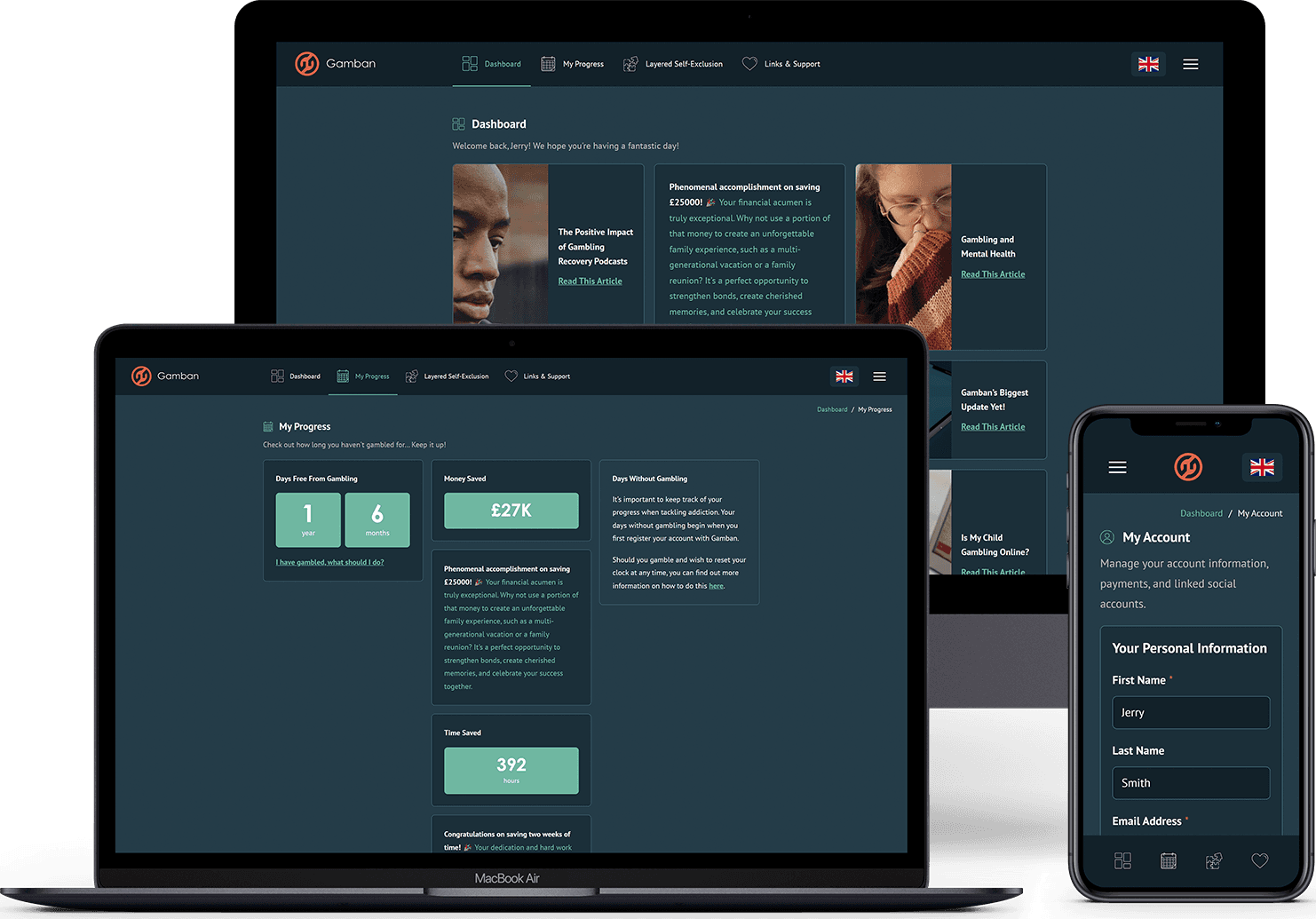12/08/2025
How to Help Those Looking for Gambling Addiction Support
There is a long-running stigma attached to those suffering from gambling addiction. Plenty of research on the subject makes that fact abundantly clear. Even without the data, those suffering under the weight of problem gambling know the pain well.
It’s time to open up about the stigma surrounding problem gambling. Let’s see how this silent epidemic impacts victims, and what we can do about it.
How stigma hurts compulsive gamblers
A stigma is defined as “a mark of disgrace associated with a particular circumstance, quality, or person.” The World Health Organization (WHO) describes social stigma as “a major cause of discrimination and exclusion.”
Those targeted by a social stigma are seen as having less value than “normal” people. The victims of this phenomenon may be shunned by friends, family and their peers. They may also experience discrimination in education, housing, employment and other factors that impact them in daily life. In its most extreme forms, social stigma contributes to substantial human rights violations. This stigma affects both men and women.
Those suffering under the weight of gambling addiction are routinely stigmatised. Even though we understand addiction much better today than ever before, it is still seen by many as a personal flaw, rather than for what it is: an illness, beyond the person’s control.
Stigmatisation carries serious consequences. The fear of social isolation can keep victims of addiction from seeking treatment, as they suffer in silence instead of opening up about the issue. This inhibits long-term harm reduction efforts and damages the victim’s self-esteem and self-worth.
The end result: the potential for increasingly-destructive behaviour and even suicide. In fact, problem gamblers have the highest rate of attempted suicide among all addictive disorders. Because of the stigma of problem gambling, those suffering under the weight of addiction and social pressure can be made to feel there is no other alternative.
What can be done?
The problem can get better, but only once people feel more comfortable reaching out for help. That’s why destigmatising gambling addiction is the key to treating the problem.
Beating the stigma surrounding problem gambling is not going to be easy or quick. It will take years to reshape how we think about addiction and how we treat addicts in general. However, there are small acts you can take on your own to help:
- Be compassionate: Show understanding, kindness and support to those suffering from addiction. Withhold judgement, and instead simply listen to their experiences and needs.
- Do your research: Education breeds empathy. If you understand what those in the grip of addiction are going through, you can better understand how to help.
- Avoid labels: Words like “addict” put blame on the individual. We want to avoid blaming the victim and instead focus on the real problem: the behaviour.
- Educate others: Even those with good intentions can cause harm through a lack of knowledge. Share what you learn to help broaden the understanding.
- Be an advocate: Don’t stay silent when you see others abuse or misrepresent victims of gambling. Speak up and let people know they’re not alone.
Of course, while the behaviour is the core problem, access to online gambling often enables and aggravates the issue. That’s why tools capable of blocking access to such sites are an important piece of the puzzle.
Help is out there
Even if you are not ready to talk, there are tools you can use to start your recovery journey. Gambling blocking software allows you to keep gambling away from your devices (computers, smart phones and tablets); It works better when deployed together with GamStop, the UK’s free self-exclusion scheme, and payment blocking solutions, such as the one provided by Monzo. Get all of them, and as soon as you’re ready, get in touch with the National Gambling Helpline. They are there to listen, no shame, no stigma. Break the silence!
Recovery is possible.


